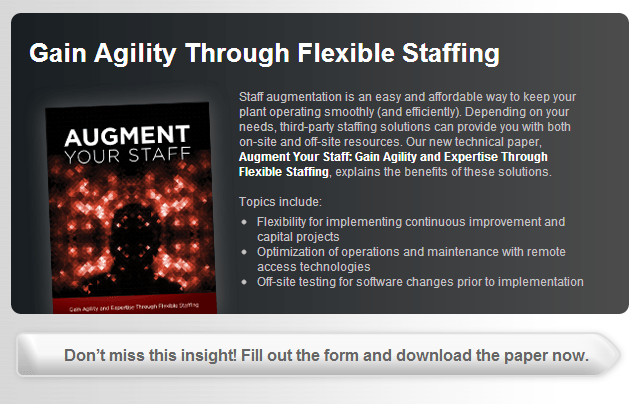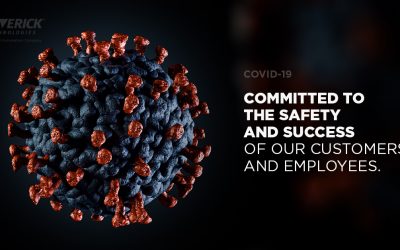8 Reasons Staff Augmentation Can Benefit Your Process Plant
For many process plants, there are three distinct tasks with respect to their control, instrumentation and information systems—otherwise known as the automation system.
 The first task category is operations and maintenance. The plant must be kept up and running with minimal downtime, with maintenance performed as needed. The second task includes continuous improvements. The existing automation system must be made to increase throughput, reduce downtime, cut energy costs, improve quality and make other enhancements to the production processes. Third, capital projects must be planned and executed for a variety of reasons, from adding capacity to regulatory compliance to changing the range of products produced.
The first task category is operations and maintenance. The plant must be kept up and running with minimal downtime, with maintenance performed as needed. The second task includes continuous improvements. The existing automation system must be made to increase throughput, reduce downtime, cut energy costs, improve quality and make other enhancements to the production processes. Third, capital projects must be planned and executed for a variety of reasons, from adding capacity to regulatory compliance to changing the range of products produced.
The operations and maintenance staff at a modern large process plant is often charged with keeping the facility operating smoothly on a 24/7/365 basis, a task that can be eased by engaging an outside service provider such as a systems integrator.
Continuous improvements to plant processes and equipment, such as this distillation column, can often be performed more efficiently by a third-party service provider specialist at an off-site operations center.
Large capital projects require substantial numbers of automation professionals for execution, and relatively few professionals for ongoing operations at the completed facilities. For that reason, even the largest process plants and companies find it hard to financially justify the retention of staff required for large capital projects after the job is completed.
Staff augmentation can provide a number of benefits to process plants, such as improved operations and maintenance, and needed expertise for continuous improvement and capital projects. Using the same systems integrator to augment staff in all three of these areas can be the most mutually beneficial solution for both the process plant and the systems integrator.
8 Benefits of Staff Augmentation
1. Can provide 24/7/365 support
2. Easier and quicker than adding full-time, in-house staff
3. Can be less expensive than hiring and retaining full-time staff
4. Often better at providing specialized expertise
5. Can be ramped up and down as required
6. Can provide off-site testing of software changes prior to implementation
7. Can introduce ideas and technologies from outside the plant walls
8. Can afford to keep highly specialized process experts on staff



